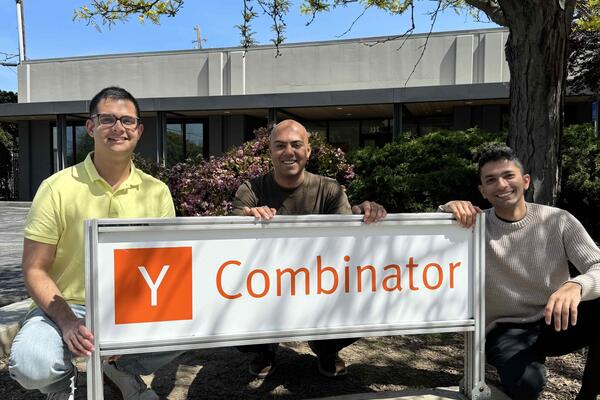
A need for clean: This startup is automating data cleaning to keep up with AI demand
Artemis Data has raised $2 million in pre-seed funding to make data cleaning 50 times faster

Artemis Data has raised $2 million in pre-seed funding to make data cleaning 50 times faster
By Naomi Grosman VelocityTo build artificial intelligence you need droves of data. But if your data isn’t clean, the intelligence it produces won’t be either. AI systems learn from the data they are trained on, so any errors or inconsistencies in the data can lead to incorrect or unreliable outcomes. According to IBM, data scientists spend around 80 per cent of their time cleaning and organizing data, highlighting the importance of clean data in AI development.
Velocity-linked startup Artemis Data has built software to make the data cleaning process fast and efficient and has raised $2 million in pre-seed funding to expand its team and onboard users. Pre-seed funding is the initial capital raised by a startup, to fund operations and product development. Raven Indigenous Capital Partners, led this funding round with participation from Telegraph Hill Capital, Ripple Ventures and other angel investors.
The startup says its product automates the process of cleaning data, significantly enhancing the efficiency of data teams and making the data cleaning process 50 times faster than traditional methods.
“The winners in the world of artificial intelligence are organizations that have clean and accessible data,” says co-founder Josh Gray. “Today, the tools to clean and transform data do not allow teams to scale their work fast enough to keep up with the demand for insights and new AI products. Artemis is here to change that.”
Co-founder William Shi (BASc In Progess) says the software platform, which is currently in beta testing with about 30 customers, is all about accelerating team speed for data reporting and cleanup. Gray and Shi have been friends since middle school. They reconnected ahead of the popular Collision Conference in Toronto two years ago where Gray was presenting the idea behind Artemis. Shi was studying mechatronics engineering at the University of Waterloo at the time and wanted to build the product.
“We scrapped together a quick demo for a presentation at the conference and that validated us to continue building. We got a solid wait list, and it was during my final term at Waterloo that we started onboarding customers,” Shi says. “Essentially I had a full-time job in my final year.”

Left to right: Josh Gray, William Shi, Keaton Heisterman and Kirsten Josling at the startup’s Vancouver office
Shi found a home at Velocity digital, where he received valuable feedback on product validation and how to take the product from its initial stages to being ready to speak to investors. At the time, Gray and Shi were working remotely from each other: Gray in Vancouver, where Artemis is headquartered, and Shi in Waterloo.
Shi says it was useful to be embedded in a startup community and have a dedicated space to work out of.
“Being a technical co-founder I was heads down, building and didn’t have a lot of time to attend Velocity programs but I found that when I needed product or business support, it was available,” Shi says. “I’ve tried building both software and hardware. I’ve always had so many ideas and all I’ve wanted to do is work on them.”
Shi has followed his natural curiosity for how things worked with the goal of starting a company. As a startup founder, he discovered the perfect intersection of his interests and strengths.

Read more
Startup Setori raises seed round, hires all University of Waterloo team to build AI companion for Gen Z

Read more
Nanotech startup raises $6.5 million USD seed funding to produce its novel coating for biodegradable materials at scale

Read more
From harnessing AI to revolutionizing mental health care, Waterloo students and alum continue to tackle big problems
The University of Waterloo acknowledges that much of our work takes place on the traditional territory of the Neutral, Anishinaabeg, and Haudenosaunee peoples. Our main campus is situated on the Haldimand Tract, the land granted to the Six Nations that includes six miles on each side of the Grand River. Our active work toward reconciliation takes place across our campuses through research, learning, teaching, and community building, and is co-ordinated within the Office of Indigenous Relations.